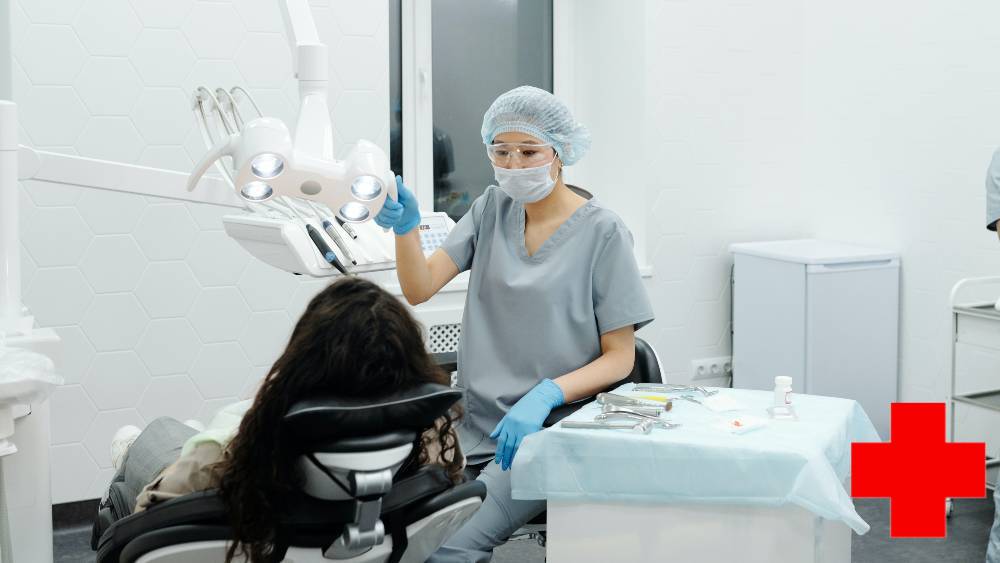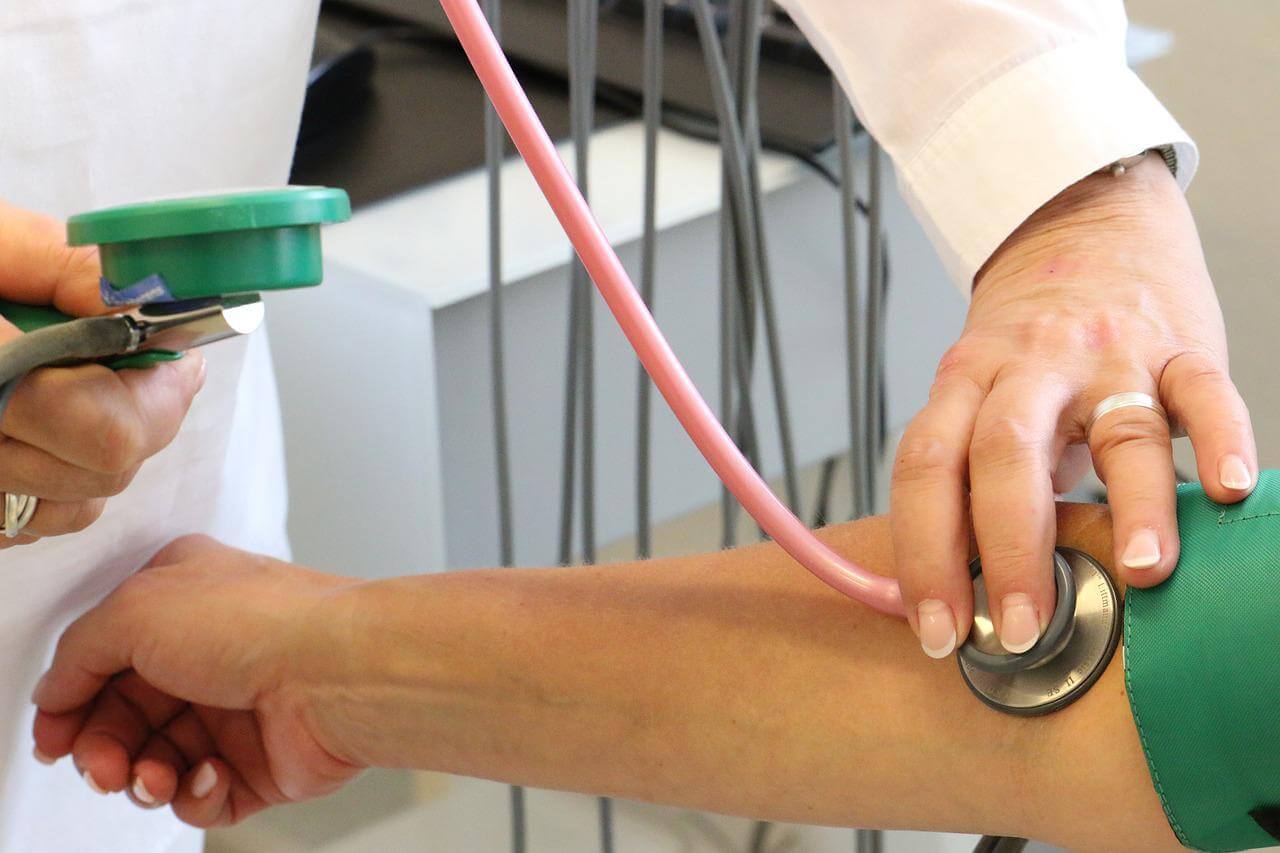Hi there, welcome to an informative and interactive read on Clinical Nurse Specialist vs NP!
This piece will shed light on the relationship between Clinical Nurse Specialists and Nurse Practitioners in education, work environments, earnings, and roles.
At the end of this piece, you’ll know the differences and similarities between the CNS and NP.
We’ll dissect the following concepts:
- Overview of Clinical Nurse Practitioner vs Clinical Nurse
- NP vs CNS education requirements
- Differences between CNS and NP roles
- National Certification requirements for Nurse Clinicians vs Nurse Practitioners
Let’s get into the main discourse!
Introduction to Clinical Nurse Specialist vs NP

Our main preoccupation in this piece is to answer the question: “what is a Clinical Nurse Specialist vs Nurse Practitioner?”
The differences between a CNS and an NP are mild because they’re both Advanced Practice Registered Nurses (APRNs).
Other types of APRNs are: Certified Registered Nurse Anesthetists (CRNA) and Certified Nurse Midwife (CNM).

If you want to pursue an APRN role and are confused about which to go for between the CNS and NP specializations, this article is for you.
Becoming an Advanced Practice Nurse is energy-sapping and financially demanding; thus, you mustn’t make the wrong choice!
Below are the key guides to help you make an informed decision:
Clinical Nurse Specialist vs NP Education Requirements

A Clinical Nurse Specialist must possess a Master of Science in Nursing (MSN) or Doctor of Nursing Practice (DNP) degree and other relevant credentials before APRN licensure.
A CNS hopeful must also complete advanced coursework in these areas, apart from training in their specialization:
- Pharmacology
- Health Care Policy
- Nursing Education
- Pathophysiology
- Nursing Informatics
- Physical Health Assessment
- Research
- Epidemiology
On the other hand, an NP must have a Master’s Degree or DNP and other Post-Master’s credentials.
NP hopefuls will take the following courses:
- Advanced Pharmacology
- Advanced Pathophysiology
- Healthcare Informatics
- Clinical Research
- Leadership
- Clinical Ethics
- Practicum
- Advanced Physical Assessment
Hence, you require an MSN or DNP to become a CNS or NP, but you must have certifications in specialty areas.
Certification Requirements for NP and Clinical Nurse Specialists

Apart from your Nursing Degree, you must possess additional certifications to operate as a Nurse Practitioner or Clinical Nurse.
The American Nurses Credentialing Center (ANCC) and the American Association of Critical-Care Nurses (AACN) administer the National Certification Exams for CNS Nursing Programs.
The requirements for the CNS Certification Exam include:
- Completion of core coursework
- A current and unencumbered RN license
- MSN or DNP Degree
- 500 supervised contact hours in a chosen specialty
You should renew your certification every 5 years.
The recertification requirements include:
- Completion of 150 continuing education unit hours, 25 of which must be in Pharmacology
- Record 1,000 clinical hours
Conversely, the American Association of Nurse Practitioners (AANP) and the American Nurses Credentialing Center (ANCC) conduct the National Exams for NP hopefuls.
An applicant must meet the following requirements to take the CRNP exam:
- Complete main coursework
- A current and an active RN license
- MSN Degree from an accredited institution
- 500 supervised contact hours in a chosen specialty
NPs must renew their credentials biennially.
You should meet the following requirements to renew your certification:
- Record 1,000 hours of clinical practice within 2 years
- Complete 75 CE hours, 25 of which must be in Pharmacology
Hence, while the CNS requires 5 years for recertification, an NP must recertify every 2 years.
In addition, the CNS requires 150 hours of continuing education, and NPs need 75.
Specialty Areas for NP and Clinical Nurse Specialists

Every Advanced Practice Nursing has its specialized focus.
The factors that define Clinical Nurse Specialty areas include:
- Type of problem (such as Pain Management, Wound Care)
- Practice settings (such as Specialty Clinics, Intensive Care Units, and Private Practice)
- Type of care (such as Postpartum, Rehabilitation)
- Patient population (such as Pediatrics, Adult-Gerontology)
CNS Specialties include:
- Home Health
- Gerontology
- Adult Psychiatric-Mental Health
- Public and Community Health
- Geriatrics
- Diabetes Management
- Pediatrics
- Child/Adolescent Psychological and Mental Health
- Neonatal

Conversely, Nurse Practitioners specialize in these areas:
- Emergency Care
- Neonatal
- Adult-Gerontology—Primary or Acute Care
- Trauma
- Family Nurse Practitioner (FNP)—Acute or Primary Care
- Psychiatric or Mental Health
- Women’s Health
- Pediatric—Primary or Acute Care
Differences Between NP and Clinical Nurse Specialists Roles

Nursing Specialists are distinguished by their roles and responsibilities.
We can’t clearly understand the differences between CNS and NP without highlighting their roles in the Health Care System.
CNSs render advanced level Patient Care in different health care settings.
They’re known for Evidence-Based Practices.
The National Association of Clinical Nurse Specialists (NACNS) states that Clinical Nurses provide leadership in Nursing practice, render clinical expertise, and ensure system innovation in outpatient, community, long-term care facilities, and hospitals.
CNS Nursing roles also entail:
- Conducting diagnostic tests and initiating treatment procedures
- Managing and preventing diseases
- Reducing risks and prescribing medications
- Ordering and evaluating tests
- Researching, developing, and maintaining policies and procedures
- Sharing of research findings to improve patient outcomes
- Playing leadership roles to other Nursing staff
The Clinical Nurse Specialist role has existed for more than six decades.
The impact of CNS in Nursing is felt through:
- Reduced admissions and hospital costs
- Enhanced pain management practices
- Reduced complications and enhanced patient satisfaction in Nursing care
- Reduced emergency room activities
Nurse Practitioners also provide advanced direct patient care in different settings.
However, their core competencies differ from CNSs.
NPs work independently and liaise with other healthcare professionals to offer specialty healthcare services.
Nurse Practitioners’ general roles include:
- Ordering, performing and interpreting diagnostic tests
- Recording and examining patient medical history
- Counseling and managing patient’s entire care
- Diagnosing and managing chronic and critical situations
- Operating and observing medical equipment
- Liaising with other Primary Care Providers for effective health care services
- Monitoring patients for changes in their conditions and changing treatment plans accordingly
- Enlightening patients and their loved ones on disease management and prevention
- Conducting physical examinations and prescribing medications
All the roles listed above are the general duties of NPs as specific duties differ by subspecialties and work environment.
For instance, a Family Nurse Practitioner (FNP) role differs from a Women’s Health Nurse Practitioner (WHNP).
Thus, if you’re interested in the specific roles of these professionals beyond the general interventions, dig deep about them and know what it takes to be an APRN.
However, an NP expert is versatile and can flexibly fit into different roles.
When you analyze Nurse Practitioner and Clinical Nurse Specialist roles, you’ll discover they’re no-go areas for RN Specialists; BSN holders will be overwhelmed with them.
In other words, the roles are beyond the purview of BSN RNs.
Differences in Scope of Practice
The laws guiding CNSs vary by jurisdiction.
Clinical Nurses can practice independently in 28 states as of May 2016.
However, only 19 states have given them prescriptive authority as of that period.
Furthermore, 13 other states recognize Clinical Nurses as APRNs but mandate them to have a collaborative agreement with Physicians.
Clinical Nurses can’t prescribe controlled substances in any state.
Check with your state Licensing Board and the National Association of Clinical Nurse Specialists (NACNS) website to know the exact prescriptive authority of your state.
On the other hand, Nurse Practitioners have full practice authority in 23 states.

States where NPs can work autonomously include Washington, Hawaii, Oregon, Iowa, Alaska, and Maine.
However, Nurse Practitioners don’t have autonomous practice authority in Utah, Ohio, and Pennsylvania, while Florida, California, and Texas have restricted practice.
They must consult with Medical Doctors in some instances to sign some documents.
Nurse Practitioners administer controlled substances in 49 states and have prescriptive authority in every state of the country.
Hence, if you want more freedom in your Nursing career, NP is ideal.
Work Environment
Clinical Nurses work in hospitals, Physicians’ offices, laboratories, educational institutions, outpatient care centers, community centers, and other care facilities.
However, NPs work in a wider range of environments than CNSs.
Their work settings include private homes, ambulatory care settings, palliative care services, private practices, research agencies, community health agencies, outpatient settings, and Acute Care settings.
The types of Clinical Nurse Specialists and Nurse Practitioners will dictate the specific work settings.
For instance, a Research Clinical Nurse is more likely to work in an educational institution or laboratory than in a clinic.
Salary Potentials

According to the Bureau of Labor Statistics (BLS), the national average salary of Advanced Practice Registered Nurses as of May 2022 was $123,780 per annum.
However, the BLS didn’t give the specific average for any APRN type.
CNSs make an average of $39.65 hourly and $82,000 annually.
On the other hand, NPs make $111,680 per annum.
Clinical Nurses are the lowest earners among the four APRN types.
Also, salaries vary by region, education, experience, and work setting.
Some RN CNSs earn higher than NPs in some circumstances.
Research salaries in your jurisdiction to know your areas of advantage and how to maximize them!
Conclusion

We started this discussion by explaining CNS vs NP meaning because you can’t explain the relationships between them without knowing what they entail.
We submitted that Clinical Nurses and Nurse Practitioners are advanced-level Healthcare Providers working in different healthcare settings.
The discourse also bothers the education and certification requirements for becoming an NP or CNS.
Although they both require an MSN or DNP degree, you must also have industry-specific credentials before licensure.
Ultimately, here’s a guide to help you decide which area to specialize in.
You learned through this piece that NPs and Clinical Nurses don’t serve the same patient population.
You also got an insight into their earnings.
Salary is an important factor in making your Nursing career decision.
While both are rewarding, we discovered that the NP is more rewarding than CNS.
Of course, money shouldn’t be the sole determiner of your specialization!
FAQs

What is a Clinical Nurse Specialist?
A CNS is an APRN with an MSN or DNP in a specialized Nursing field. They’re into clinical practice, advocacy, research, and teaching. Clinical Nurses also play leadership roles and ensure effective collaborations among Healthcare Providers. CNSs are the most versatile APRNs in Nursing; the entire system revolves around them.
What is a Clinical Nurse Specialist vs Nurse Practitioner?
They are Advanced Practice Nurses with a Master’s Degree and additional specialized certifications. A Nurse Specialist must recertify every 2 years, while a Clinical Nurse recertifies every 5 years.
Are Nurse Practitioners in demand?
Nurse Practitioners and APRNs generally are in demand. The Bureau of Labor Statistics (BLS) projected a 40% job growth for Advanced Practice Nurses in the next decade. Nurse Practitioners perform advanced roles that require graduate-level degrees and experience. Thus, the position is reserved for a qualified few.
What is a CNS Nurse Program?
CNS Nursing Programs are mandatory certificate Programs for aspiring Clinical Nurses. CNS hopefuls must undergo these programs to sharpen their intellect and satisfy the requirements for licensure. The AACN and ANCC are the accredited bodies for organizing CNS Nursing Programs.
What is the difference between a Nurse Practitioner and CNS Salary?
Clinical Nurse Specialists earn between $80,000 and $114,754 per annum and an average of $82,000. Conversely, Certified Registered Nurse Practitioners make between $85,880 and $143,480 per year, with an average of $111,680.









